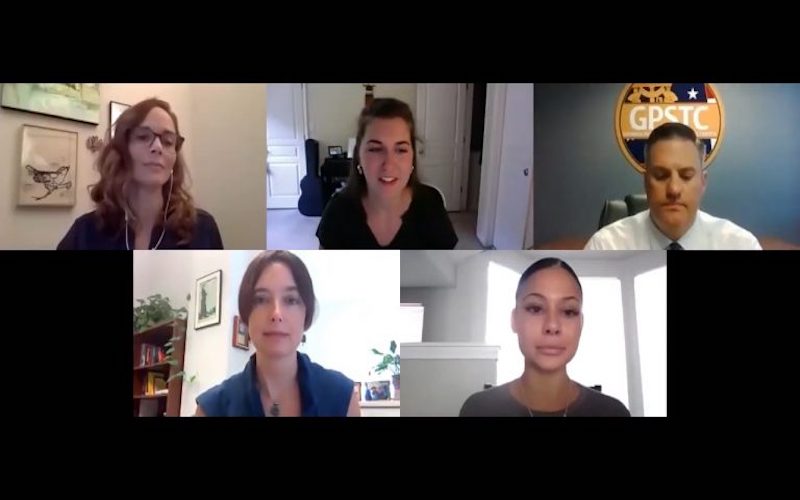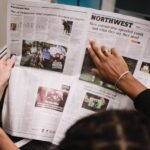
On May 6, 2021, the Georgia First Amendment Foundation, in partnership with the Society of Professional Journalists, Georgia Chapter and the Georgia Public Safety Training Center, hosted a virtual panel discussion on Police & the Press: News Coverage of Protests
The panel featured Clinic director Clare R. Norins who spoke about the take-aways from journalists covering a historic year of protests galvanized by the murder of George Floyd and what can be done to ensure that journalists’ rights are protected when interacting with law enforcement.
“Journalists serve a vitally important role in our society to be the eyes and ears of the public. They need access to observe, record and report about protests and about interactions between civilians and law enforcement. They cannot be arrested or subjected to use of force for simply being present and taking pictures or video, or taking notes,” Norins said.
“At the same time, law enforcement has an important job to do of maintaining public safety. And this means that journalists have to follow the same rules as other civilians. They can’t interfere with police activity. They cannot trespass. They have to comply with orders to disperse. So there is a need for both parties to have a mutual understanding of the rules of engagement.”
Norins also discussed the sometimes disparate treatment by law enforcement of corporate media vs. freelance and independent journalists even though the two groups enjoy equal rights of speech and press under the law.
Other members of the panel included:
- Jasmina Alston, Reporter, WGCL-TV CBS 46
- Charlotte Norsworthy, Past President, Society of Professional Journalists (SPJ), Georgia Chapter, and Editor, Outlaw Ocean Project
- Chadd Wilson, Director of Basic Training Division and Public Information Officer, Georgia Public Safety Training Center (GPSTC)
SPJ, Georgia Chapter and GPSTC recently collaborated to develop a media training course for police officers, with input from the First Amendment Clinic and the Georgia First Amendment Foundation.
The Clinic also offers a “Know Your Rights” resource for journalists covering protests.
Video
Police & the Press: News Coverage of Protests
May 6, 2021, panel discussion and Q&A covered what journalists and law enforcement officers need to know to better understand and respect one another’s roles during volatile events of public interest, such as protests. Panelists detailed laws that protect press freedoms and give police authority to keep the peace. The virtual event was pegged to a new media training course for law enforcement officers developed by the Society of Professional Journalists Georgia Chapter in conjunction with the Georgia Public Safety Training Center (GPSTC).
On the panel:
– Jasmina Alston, Reporter, WGCL-TV CBS 46
– Clare Norins, Director, UGA Law School First Amendment Clinic, and Board Member, Georgia First Amendment Foundation
– Charlotte Norsworthy, Past President, SPJ GA, and Editor, Outlaw Ocean Project
– Chadd Wilson, Division Director for Basic Training Division, Georgia Public Safety Training Center

The Issue
Media Law
The First Amendment guarantees a free press, meaning journalists are able to express any opinions they want about the government, even criticisms. However, journalists are often hindered in their ability to gather and publish news through the threat of lawsuits, subpoenas, and criminal prosecution. Read more about our support for student and professional journalists here.
Explore Issue